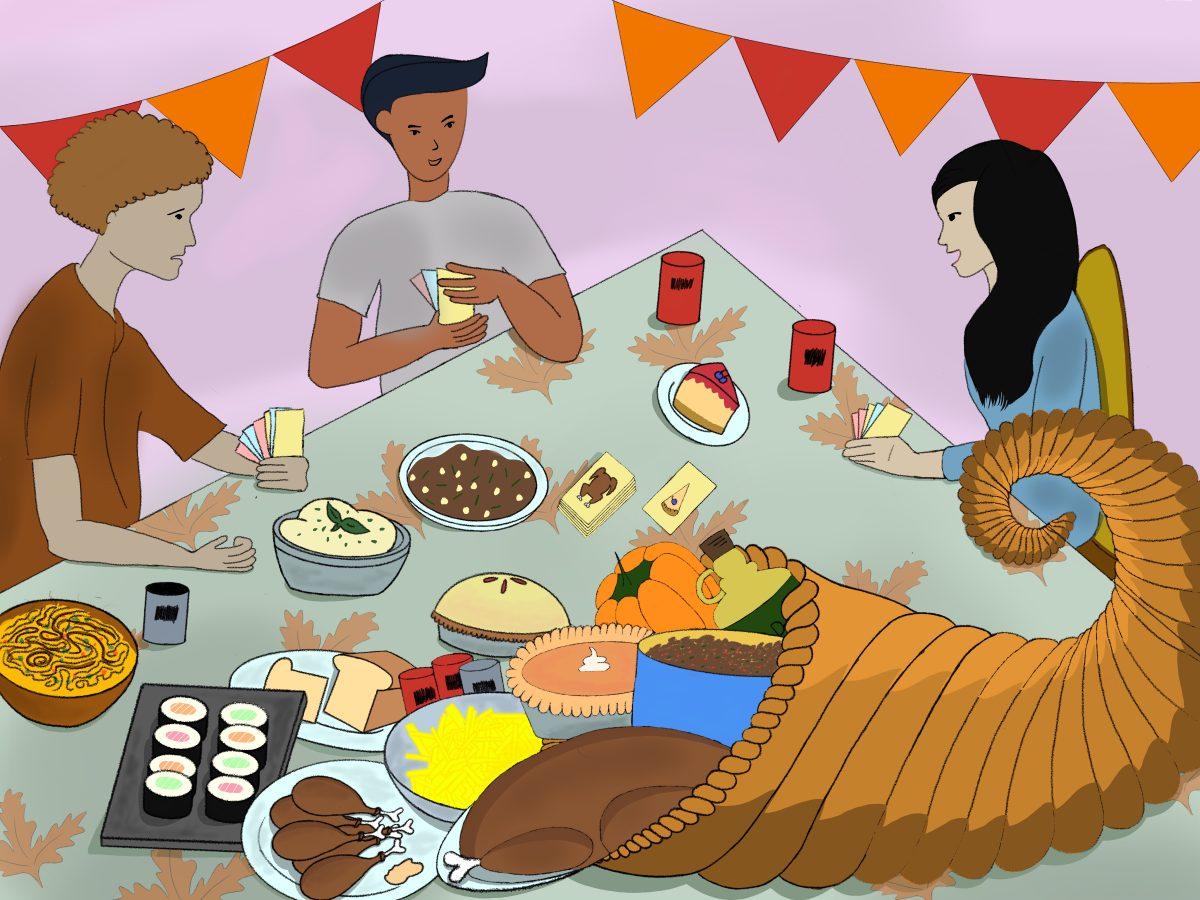The pandemic lockdown canceled many holiday celebrations last year, but this Thanksgiving season will likely see the return of “Friendsgiving,” an event where friends gather to share a meal.
The word Friendsgiving refers to a large, informal meal shared among friends around Thanksgiving time. According to Merriam-Webster, the first known print use of the word goes back to 2007, where it was found in a few online posts. Soon, Friendsgiving began appearing in lifestyle articles and even an episode of “The Real Housewives of New Jersey.” In January 2020, Friendsgiving was added to the Merriam-Webster dictionary, cementing the word into the English language.
Friendsgiving often serves as a second Thanksgiving, not an alternative. It has a different function — it provides time spent with friends saving family time for Thanksgiving.
“I think [Friendsgiving] is low-stakes; you get to have dinner with your friends, but it’s also a special event,” said Ezekiel Snyder, a second-year studying biological sciences.
For some, including Snyder, a formal Thanksgiving spent with family can feel stressful and more like an obligation rather than a joyful gathering.
“You always have Thanksgiving with your family,” Snyder said. “It’s kind of like, your aunt’s there, your uncle’s there, you have to sit at the kids’ table with your cousins. It’s kind of ‘ugh.’”
Friendsgiving, however, offers a more voluntary holiday gathering.
“I think Friendsgiving is cool because it’s not an obligation as much as a family gathering would be,” said Matthew Strickland, a fourth-year studying industrial engineering. “I know a lot of people do enjoy gathering with their family on Thanksgiving, but there are definitely people who don’t enjoy it or don’t enjoy parts of it. And with Friendsgiving, you don’t have to do it. You are wanting to do it with your friends.”
At Friendsgivings, there are no “my-how-much-you’ve-grown” comments or aging relatives complaining about new medical issues they are now suffering. There aren’t long, drawn-out conversations, either. Instead, it’s an informal holiday that can be celebrated in a variety of ways.
“You could cater chicken nugget trays from Chick-fil-A for really cheap,” Snyder said, speaking of his own Friendsgiving experiences. “You get about a couple hundred chicken nuggets for 10 guys for less than seven [dollars] each. It’s pretty good. And you get sweet tea as well.”
Instead of nuggets and tea, others may prefer home-cooked meals.
“I do think there is something special to be said about making food for other people and sharing that with them,” Strickland said. “I don’t know, something about making food for someone else and then seeing them enjoy it is special.”
Some students also bring gifts in addition to food. Tuccoae McDowell, a fourth-year studying computer engineering, spoke about her Friendsgiving-Christmas combo events.
“I think sometimes we would, like, incorporate Christmas a little bit because it would be right before finals, so we wouldn’t see each other after that,” McDowell said.
Whether or not food and gifts are involved, Friendsgiving is about giving and spending time with others. It is about giving thanks for one another and strengthening the bonds with the family away from family.
“It’s like maintaining the bond,” McDowell said. “It’s important for rest and hanging out. Quality time, I guess.”













